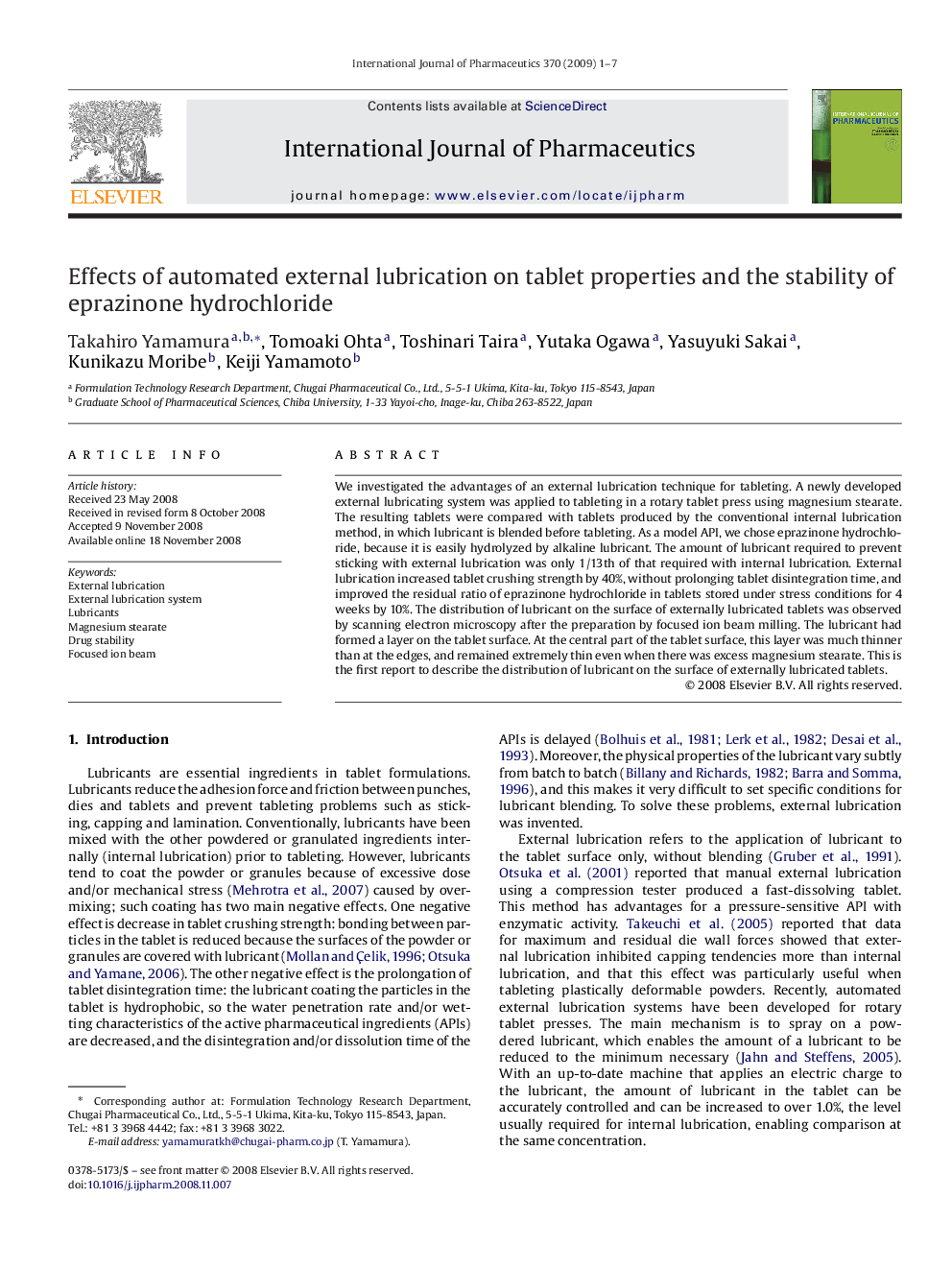| Article ID | Journal | Published Year | Pages | File Type |
|---|---|---|---|---|
| 2504899 | International Journal of Pharmaceutics | 2009 | 7 Pages |
We investigated the advantages of an external lubrication technique for tableting. A newly developed external lubricating system was applied to tableting in a rotary tablet press using magnesium stearate. The resulting tablets were compared with tablets produced by the conventional internal lubrication method, in which lubricant is blended before tableting. As a model API, we chose eprazinone hydrochloride, because it is easily hydrolyzed by alkaline lubricant. The amount of lubricant required to prevent sticking with external lubrication was only 1/13th of that required with internal lubrication. External lubrication increased tablet crushing strength by 40%, without prolonging tablet disintegration time, and improved the residual ratio of eprazinone hydrochloride in tablets stored under stress conditions for 4 weeks by 10%. The distribution of lubricant on the surface of externally lubricated tablets was observed by scanning electron microscopy after the preparation by focused ion beam milling. The lubricant had formed a layer on the tablet surface. At the central part of the tablet surface, this layer was much thinner than at the edges, and remained extremely thin even when there was excess magnesium stearate. This is the first report to describe the distribution of lubricant on the surface of externally lubricated tablets.
